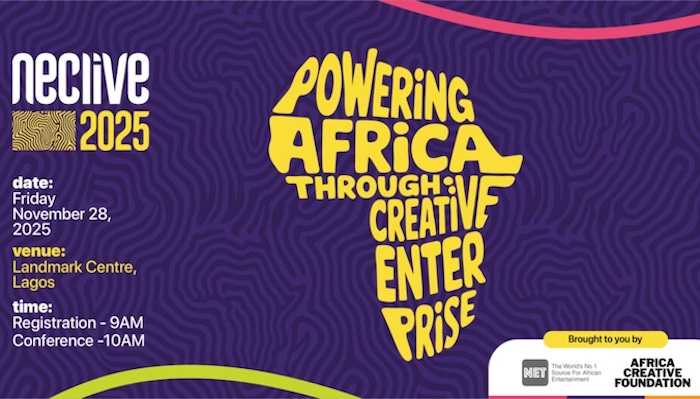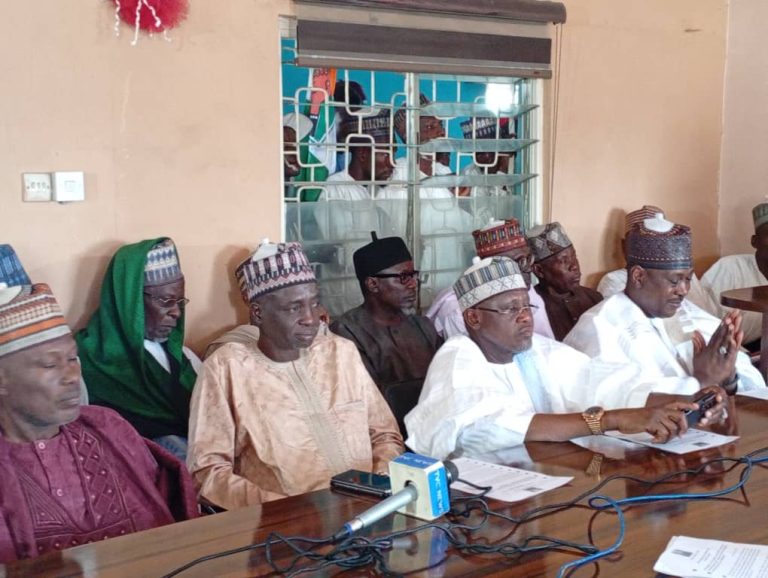
As Nigeria’s creative industries continue to make global waves—from Afrobeats artistes selling out stadiums to Nollywood’s growing box office dominance—the focus is shifting from cultural celebration to economic sustainability. This transformation will take centre stage at the Nigerian Entertainment Conference (NECLive), returning to Lagos on Friday, November 28, 2025, under the theme “Powering Africa Through Creative Enterprise.”
Since its inception in 2013, NECLive has evolved into West Africa’s largest and most influential gathering of the creative sector. It has hosted more than 500 keynotes, workshops, and panel discussions, drawing over 100,000 participants and reaching more than 100 million people across 50 countries. Over the years, the conference has facilitated upwards of 1,000 industry deals and partnerships, solidifying its reputation as a key catalyst for growth and collaboration within Africa’s entertainment ecosystem.
The 2025 conference will feature a stellar lineup of speakers and performers from across Africa and the diaspora, including Steve Babaeko, Audu Maikori, Mike Dada, Colette Otusheso, Ojoma Ochai, Obi Asika, Moses Babatope, Funmi Iyanda, John Ugbe, and Chris Ihidero. Also confirmed are Fisayo Fosudo, Moliehi Molekoa, Nora Awolowo, Shaibu Husseini, Folu Storms, Qudus Onikeku, and Dolapo Amusat.
This year’s edition comes at a defining moment for African creativity. Nollywood has retained its position as the world’s second-largest film industry by volume, while Afrobeats continues to dominate the global stage with record-breaking performances and Grammy acclaim. The creative sector now contributes around 2.3% to Nigeria’s GDP, valued at over $4.2 billion annually, with Nigerian films accounting for more than half of box office revenues in early 2024.
Yet, beneath these achievements lie persistent challenges. Industry players continue to grapple with inadequate infrastructure, limited funding access, weak intellectual property protection, and inefficient distribution networks. Rising production costs, piracy, and monetisation hurdles further threaten long-term growth. Despite the launch of the 2024 National Creative Economy Policy, full implementation remains slow, leaving the sector without the strong legal and economic frameworks it needs to thrive.
“After more than a decade of facilitating crucial conversations within Nigeria’s entertainment industry, we’re witnessing an unprecedented moment where our creative talents are gaining global recognition and commercial success,” said Ayeni Adekunle, Founder and Convener of NECLive. “However, we must now focus on building the infrastructure, appropriate policies, and business frameworks that will ensure this momentum translates into sustainable economic power for our nation. This year’s NECLive theme reflects our commitment to demonstrating how creative enterprise can be a genuine driver of Nigeria and Africa’s economic transformation.”
Produced by Nigerian Entertainment Today and the Africa Creative Foundation, in association with ID Africa, BHM, and Huce Valeris, NECLive 2025 is backed by major industry partners including MultiChoice, MTN Nigeria, First Bank, The Macallan, and X3M Ideas. The event promises to deliver high-level discussions on policy, innovation, and investment, reaffirming its position as the heartbeat of Africa’s creative economy.
Melissa Enoch



